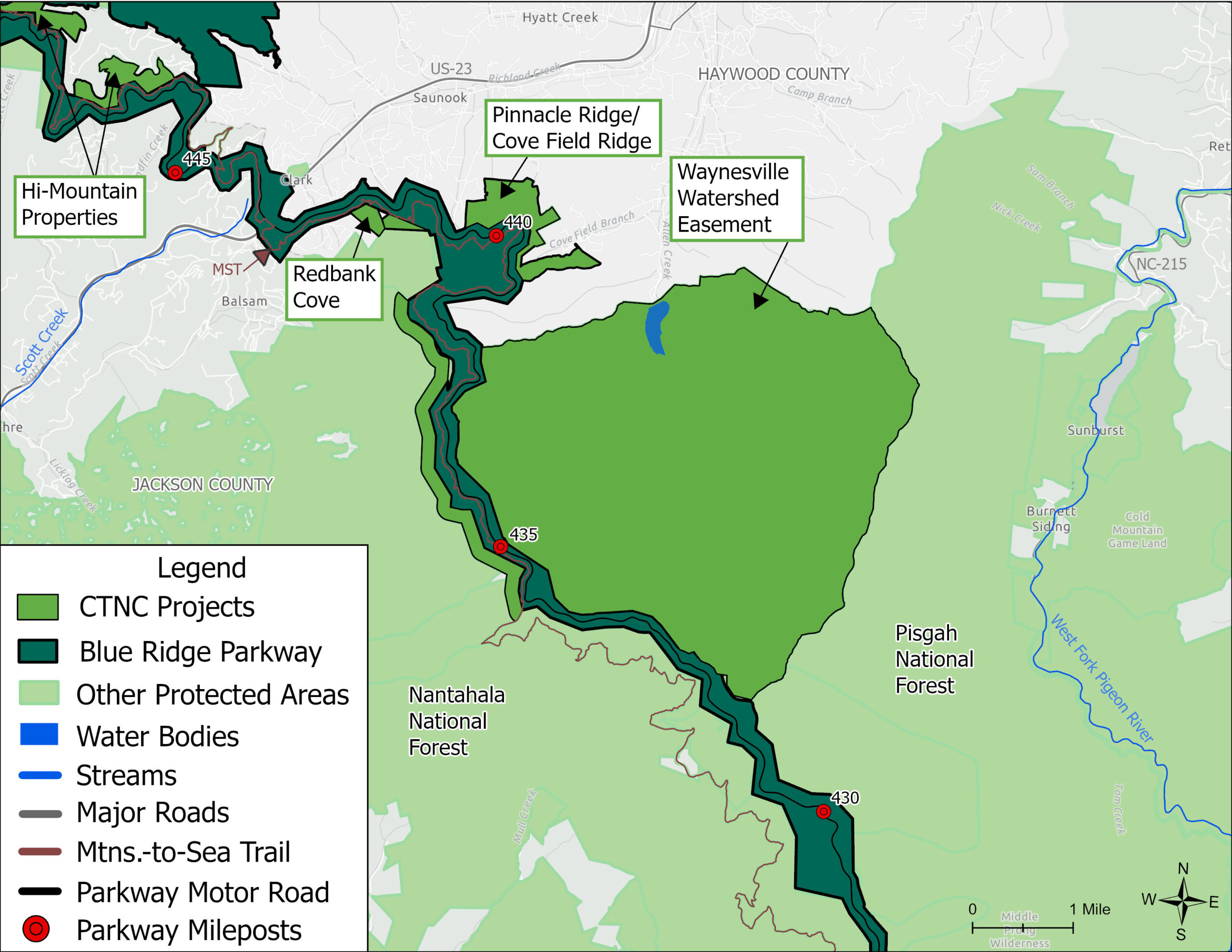Waynesville Watershed Conservation Area
Did You Know? Protecting land along the Parkway is more than counting acres and preserving views. It serves a deeper conservation purpose.
CTNC’s land protection team continues building trusting relationships with partners and landowners up and down the Blue Ridge Parkway. Between the Nantahala and Pisgah National Forests, we are protecting the land that surrounds the Waynesville Watershed conservation area, the primary source of drinking water for many Haywood County residents.
Milepost: 432-442
Protected: 8,400 acres
Prioritization Features: Water quality protection, climate resilience, wildlife habitat, scenic views
The 8,031-acre property, virtually all of which is visible from the Parkway, has provided pristine drinking water to residents for decades thanks to the protection of the natural land surrounding the body of water. The forested, undeveloped land efficiently absorbs rainfall to gradually fill the reservoir, meaning the town’s water supply is particularly resilient to extended droughts and damaging floods.
The protected property contains two state-designated Natural Areas that house unique plant and animal communities. With multiple contiguous protected areas, wildlife can thrive and utilize the large parcel of land undisturbed by human development. The Waynesville Watershed also serves as a learning lab for local forest managers and students at Western Carolina University.
CTNC’s success within this focus area extends well beyond the magnificent Waynesville Watershed conservation easement. CTNC has protected and transferred six properties totaling 333 acres to the National Park Service for inclusion within the Blue Ridge Parkway park boundary.
The Waynesville Watershed conservation area provides nearly 10 miles of breathtaking scenery along the Blue Ridge Parkway, including but not limited to Licklog Ridge Overlook, Steestachee Bald Overlook, and Cove Field Ridge Overlook.
Conservation and Funding Partners who make this work possible: Southern Appalachian Highlands Conservancy, Mainspring Conservation Trust, NC Land and Water Fund, Town of Waynesville, Western Carolina University, and the National Park Service.
Preserving the land along the Parkway does not exclusively benefit those residing in Western NC, but throughout the entire state. The access to recreational areas, providing clean drinking water, furthering climate resilience, and ensuring that the natural beauty of our state is preserved for future generations are just a few of the reasons why land conservation along the Blue Ridge Parkway is so critical.
Where to Find Waynesville Watershed Conservation Area






